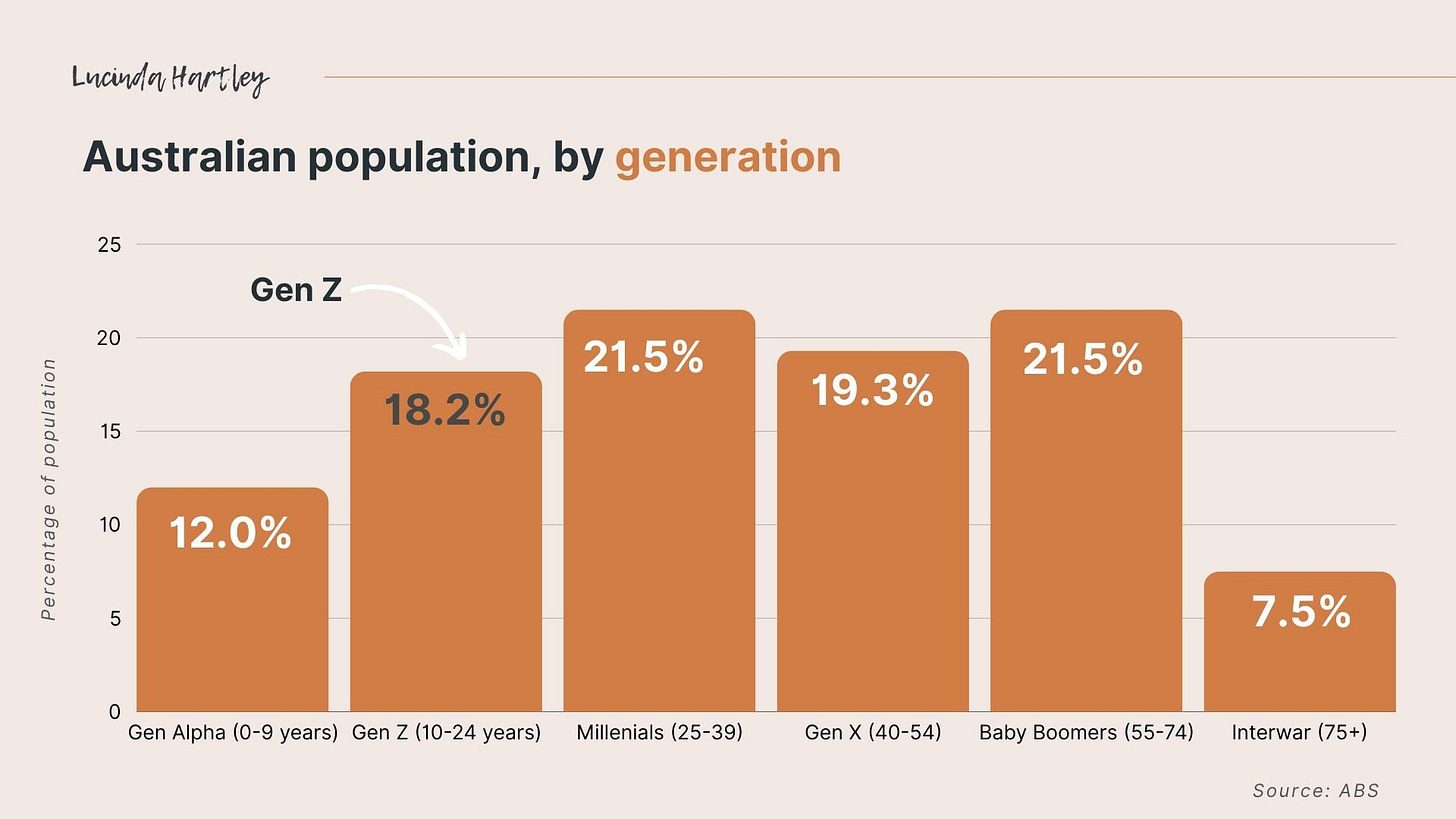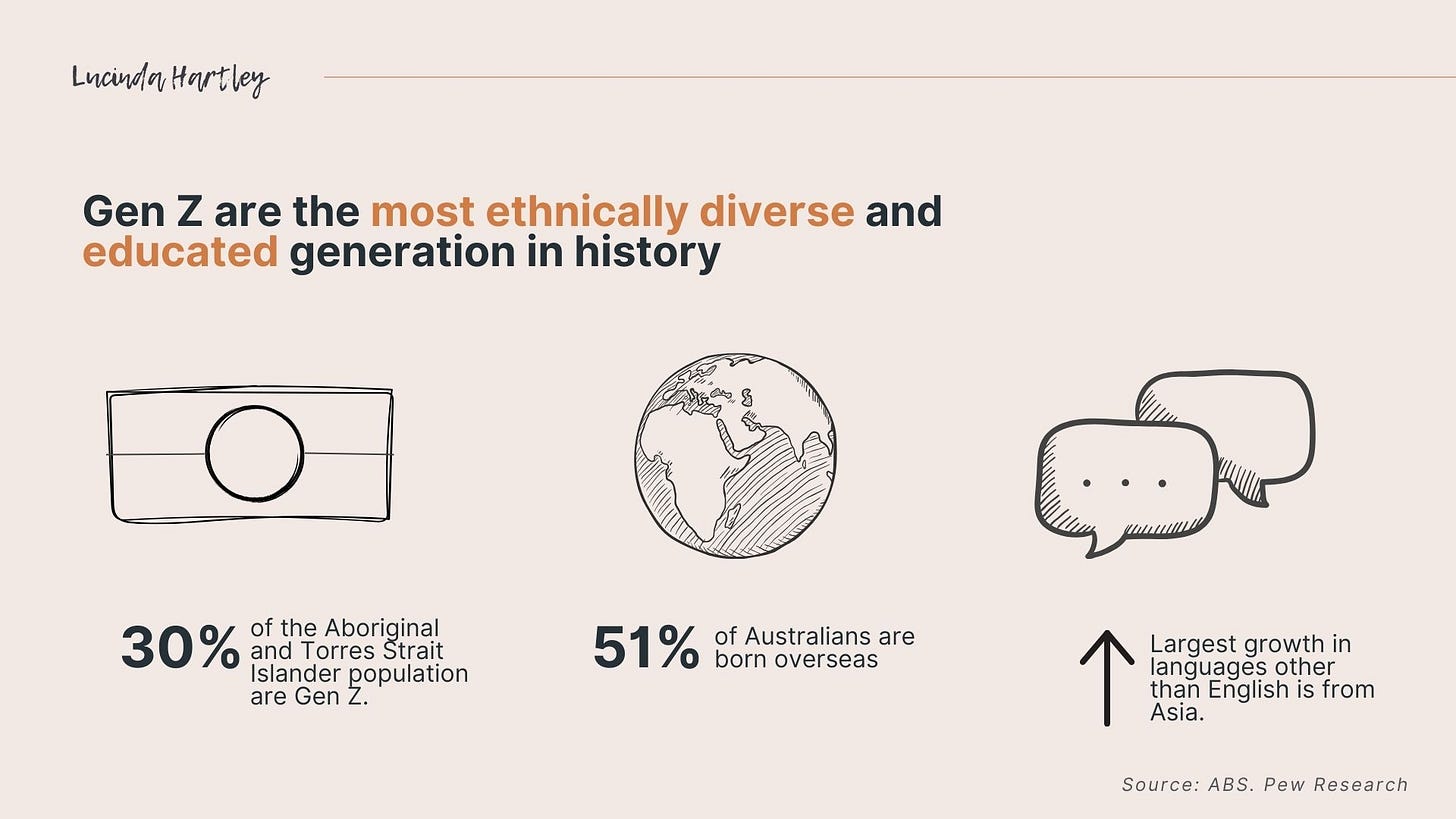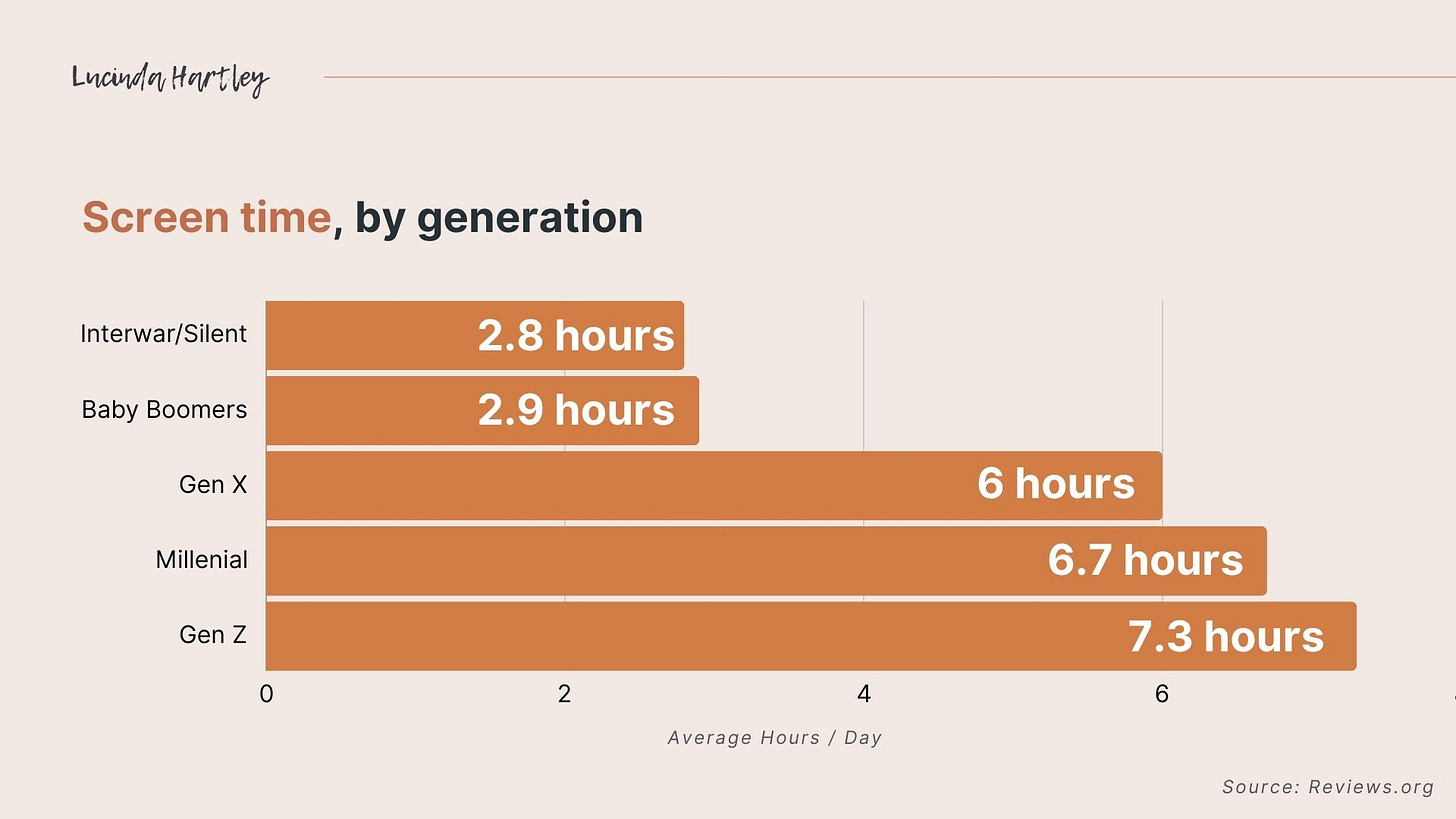Who is the future citizen? Generation Influence
As Gen Z enters the workforce, and takes up a greater proportion of voters, consumer markets and digital platforms, we’re on the cusp of a quite different and irreversible future, but are we ready?
Every now and again there is a pivotal moment in history.
Where large-scale shifts in demographics occur alongside profound technological change.
Now is arguably one of those pivotal times, where there is a generational shift combined with the emergence of the post-COVID-19 work landscape, accelerating AI and technology, and climate change - all at once.
The shift in lifestyle isn’t happening in the board rooms of cutting edge companies (although arguably, also there), it’s a shift that’s happening around messy dining tables, on our phones as we wait for the train, in the backseat of an uber ride.
My 12 year old plays dungeons and dragons using well worn paper character sheets, pencil and an eraser to keep up the ever-changing score of the 20 sided dice. But if you look closer there is also a laptop, placed in the circle in the place of one of the players, where ChatGPT is being used to help write the campaign script. A new normal.
The seat of influence is changing
No matter which way you look at it, the world is changing. Importantly, the needs of customers, communities and citizens are changing. The future citizen is likely to be fundamentally different than the current or past citizen, yet we have very little intelligence about what’s immediately about to change.
The assumptions we make about the future of housing, work and cities haven’t made many changes - yet. We assume that the people will be relatively similar to the near past ( just with iPads and faster internet), overlooking a fundamental lifestyle shift in transit patterns, work, consumer behaviour.
Right now business leaders need to be planning for a future of Gen Z leaders and a more automated, Ai-driven world. Especially when it comes to thinking about infrastructure, the future of the office and housing. Are we ready?
Over the next few weeks, I’ll be sharing an ‘in a nutshell’ outline of the key issues, stats and trends that business leaders need to consider.
Who is the future citizen?
Shaping Forces
How will they work?
How will they live?
How will they dwell?
Who is the Future Citizen?
Australia has an aging population. By 2026, one in 5 Australians will be aged over 65. However while as population we’re getting older, the seat of influence is changing.
Generation Z (generation born 1995-2009) now make up 18.2% of the Australian population, and they’re growing fast. Gen Zers will make up a quarter of the population of the Asia–Pacific region by 2025. (McKinsey).
Here’s the facts you need to know:
Gen Z now makes up more of the workforce than babyboomers, and will account for more than a quarter of the workforce by 2025, according to the World Economic Forum.
Gen Z make up one quarter of the workforce
As Gen Z enter the workforce and become more financially independent, they’re shifting the balance of influence at work, in consumer markets and digital platforms.
Gen Z now makes up more of the workforce than baby-boomers, and will account for more than a quarter of the workforce by 2025, according to the World Economic Forum.
The most diverse and educated generation in history
Gen Z are more racially and ethnically diverse than any previous generation, and they are on track to be the most well-educated (Pew Research).
In Australia, Gen Z are a more diverse cohort than previous generations, including:
The First Nations population is increasing. Gen Z represent 30 per cent of the Aboriginal and Torres Strait Islander population (ABS)
Likely to be born overseas or have parents born overseas. Now over half - 51% of Australians - are born overseas
Likely to speak an Asian Language. Mandarin is the most common language spoken after English in Australia, followed by Arabic and Vietnamese. The largest growth in population in recent years has been from Nepal, India, Pakistan, Iraq and the Philippines.
Gen Z are Digital First
The first generation to be digital first, no surprises here. They’re “Extremely online” according to a McKinsey report - with an average 7.3 hours a day online.
This generation has never known a world without the Internet, and in many ways, they’re at the leading edge of shaping its future, and in the process reshaping humanity’s relationship with technology.
98% of Gen Z own a smart phone, are mostlikely to get their news and information online, and this cohort produce largest volume of online data / searches according to google data trends.
Planning for the future citizen
The changing background, lifestyle needs and work patterns for the next generation requires a radical rethink of housing, cities and workplaces. We’ll explore how in coming blog posts
For now, questions business leaders need to be asking is:
Do we know who the future citizen is likely to be?
How is this likely to impact consumer patterns, and customer engagement?
Are we planning for a more digital future with regards to workplaces and infrastructure? Including delivery of digital infrastructure, last mile delivery and advanced facilities in urban planning?
How are we considering how more digital lifestyles will affect settlement patterns?








